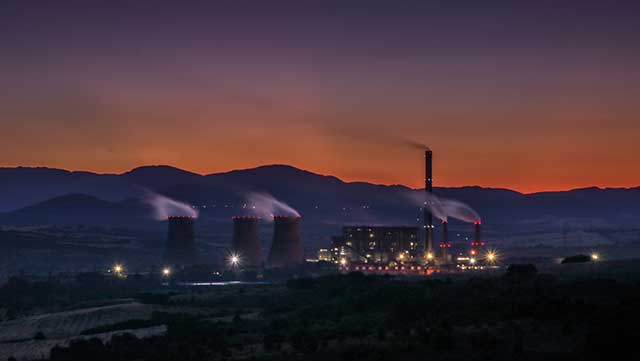India’s coal-fired power plants must comply with the strict new emission standards set in December 2015 by the Ministry of Environment, Forestry and Climate Change (MoEF&CC) by 2022. However, according to a new study report by the Center for Science and Environment ( CSE), with barely two years to go before the deadline, almost 70% of the plants will not meet the emission standards.
‘Coal-based power standards: where we stand today’ was released on Thursday at an online event hosted by CSE Director General Sunita Narain. The study presents a comprehensive assessment of progress in the implementation of environmental standards for coal-fired thermal power plants.
“Our assessment finds that even after seven years since the notification and even after the agreed five-year extension given to this sector in 2017, most of the total installed coal-fired capacity will not be compliant with the crucial sulphur dioxide (SO2) standards by 2022,” said Narain.
“Coal-fired power plants are some of the most polluting industries in the country. They account for over 60% of the total particulate matter (PM) emissions from all industries, as well as 45% of the SO2, 30% of oxides of nitrogen (NOx) and over 80% of the mercury emissions. Therefore, even as we continue using coal, India’s thermal power sector must clean up its act. This is absolutely non-negotiable,” added Narain.
As 56% of the generation capacity is based on this, coal is the mainstay of India’s power sector, according to the CSE study. In addition to being responsible for emissions of pollutants such as SO2, the sector is also extremely water-intensive – responsible for 70 % of the total withdrawal of freshwater from all industries in the country.
Here are some of the recommendations in the report:
The Ministry of the Environment should issue instructions and impose heavy fines on plants that clearly do not meet the 2022 deadline. High penalties / closure notices for non-compliant Delhi-NCR airshed plants should be issued at least for peak winter pollution months.
Take urgent decisions on older plants that can not meet the already lax emission standards. They must be withdrawn / refurbished to use alternative fuels or move towards using biomass gasification plants or state-of-the-art municipal waste treatment plants. Finance Minister Nirmala Sitharaman discussed the need to close these plants in her 2020 budget speech.
The deadline should be non-negotiable for plants that came into existence after notification – the report states that many of them are still not compliant.
Take urgent action on the implementation of water standards by issuing directions and improving the monitoring framework to ensure that plants are held accountable.



































